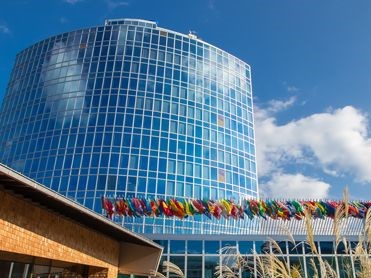PIJIP Shares New Work on Comparative Copyright Exceptions for Research at the World Intellectual Property Organization
May 10, 2022

This week PIJIP Director Sean Flynn and Senior Research Analyst Andrés Izquierdo are in Geneva for the World Intellectual Property Organization's 42nd Standing Committee on Copyright and Related Rights. The agenda includes ongoing work on a proposed broadcasters treaty, as well as debates over copyright limitations and exceptions. This year, it includes a proposal by the African Group of WIPO Member States for a work program on copyright exceptions for libraries, archives, education and research.
In advance of the SCCR, PIJIP published a new version of "Research Exceptions in Comparative Copyright," a working paper by Sean Flynn, Luca Schirru, Michael Palmedo and Andrés Izquierdo. The paper classifies countries based on the degree to which they have a research exception in their law that is sufficiently open to be able to permit reproduction and communications of copyrighted work needed for academic (i.e. non-commercial) text and data mining (TDM) research. It shows that nearly every copyright law has at least one exception that promotes uses for research purposes, and finds six different approaches to the provision of research exceptions that implicate application to TDM. Not all recent exceptions passed specifically to enable TDM receive the most open ranking in our typology, and a significant number of countries do not provide a research exception or limit uses only to quotations.
On May 10, PIJIP hosted an SCCR side event on "Copyright Exceptions and Text and Data Mining Research", moderated by South African TV host Ben Cashden. Flynn presented the paper at the event, which featured commentary by Rachael Samberg (UC Berkeley Libary), Christian Handke (Erasmus University Rotterdam), Trina Ha (IP Office of Singapore), Martin Senftleben (Univerisity of Amsterdam), Chidi Oguamanam (University of Ottawa) and Patricia Diaz (Universidad Tecnológica del Uruguay).